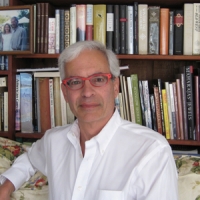The German daily newspaper, Der Tagesspiegel, recently featured an article on President Obama’s policy for limiting greenhouse gas emissions. President Obama’s environmental stance was a contributing factor to his election and re-election campaigns. Nonetheless, he has faced difficulties in implementing his reforms. We interviewed David Goldfield, Professor of History at the University of North Carolina at Charlotte, to discuss the President’s plans.
American Studies Blog: Dr. Goldfield, Der Tagesspiegel, a Berlin-based leading German daily, reported on President Obama’s new environmental initiative. Could you tell us what is new about President Obama’s plan?

Dr. Goldfield: In 2009, the House of Representatives passed a climate change bill that included some of the provisions that Obama is unveiling with respect to emissions from coal-fired plants. However, the legislation died in the U.S. Senate in 2010. The Clean Air Act of 1970 enables the President to issue an Executive Order, which bypasses Congress. Obama has pledged to cut the greenhouse gas pollution by 17% from 2005 levels before 2020. Since 40% of the nation’s electrical energy is generated by coal-fired plants, it has a significant impact on those plants. What is creative about Obama’s proposal is that it allows the states a number of policy options other than simply shutting down coal plants to reduce emissions. These options would include installing new wind and solar power as well as “cap and trade” policies (the essence of the failed 2010 legislation), where states would agree to cap carbon emissions and also buy and sell permits to pollute, thus making it increasingly expensive (and ultimately unprofitable) to pollute.
ASB: Why does this initiative come so late in the second term of the Obama administration?
Goldfield: This is in part about legacy. How are we going to remember the Obama administration? It is also about reclaiming our global leadership on climate change. How can we ask China and India to limit their carbon emissions when we don’t? There will be a climate change summit in NYC in September, and Obama is looking to that as well to assert American leadership on the issue. Ideally, Obama’s proposal would have been translated into legislation. Going the route of an Executive Order is a last resort. It will likely generate lawsuits, bitter political debate, and charges from Republicans that this plan will derail a shaky economic recovery. But if implemented, this Executive Order will likely cue capital to fund lots of alternative energy projects.
ASB: Der Tagesspiegel points out that President Obama is working through the Environmental Protection Agency because there is no majority in Congress for him to pass major environmental legislation. How does this work within the U.S. political system, and how effective can this be?
Goldfield: Executive Orders have the force of law. But they require a period of public comment and, given the polarized political climate of the U.S., it’s certain the debate will be bitter.
ASB: How is the American press reacting to this new plan?
Goldfield: This is big news in the American press. The Wall Street Journal was the first major publication (in its Sunday online edition) to break the story. Since then, it has been the lead story in The New York Times. The implications of the initiative are significant, though its impact on global warming may be slight if there isn’t some global agreement on emissions. At the very least, it will commit the U.S. to a path of weaning the country away from its dependence on coal. The target set by Obama is reachable, especially since we have increasingly used natural gas finds to lower emissions since 2005.
One final note: I’m betting that Obama will approve the Keystone Pipeline.
17,734 Total Views, 13 Views Today






